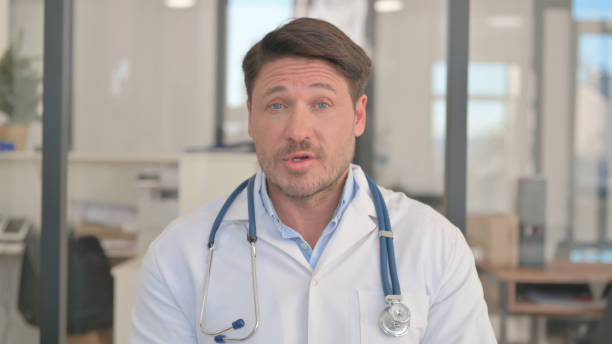Covering the breadth of general surgical practice, this section provides in-depth analysis of core principles, operative techniques, perioperative management, and advances in surgical innovation. Content is designed to support the refinement of surgical decision-making and patient care.
Learn from leading specialists in the field of General Surgery, carefully selected from around the globe. Our courses explore everything from breakthrough treatments to everyday clinical challenges, equipping you with the insight and skills to provide exceptional care.
See our courses


Medibuddy Academy offers an exceptional range of courses that are both clinically relevant and thoughtfully designed. The platform’s flexibility allows me to keep learning alongside a demanding schedule. It's a must-have for any medical professional committed to continuous improvement.

This course reviews the assessment and surgical management of intra-abdominal sepsis, including appendicitis, diverticulitis, and gastrointestinal perforation. Participants will explore diagnostic strategies, resuscitation principles, operative decision-making, and postoperative care to optimise patient outcomes.

This course addresses the acute presentation and management of gallstone-related emergencies, including cholecystitis, cholangitis, and gallstone pancreatitis. Participants will review diagnostic imaging, endoscopic interventions, and operative techniques, with emphasis on timely and safe resolution of complications.

This course covers the assessment and surgical management of intestinal obstruction, whether benign or malignant in origin. Participants will review pathophysiology, imaging, operative strategies, and postoperative care, with attention to rapid diagnosis and effective surgical intervention.

This course examines the evaluation and treatment of acute gastrointestinal bleeding. Participants will explore endoscopic, radiological, and surgical approaches, including haemostatic techniques, resuscitation strategies, and complication management.

This course provides an overview of trauma assessment and surgical management for abdominal and pelvic injuries. Participants will review resuscitation protocols, operative interventions, damage control surgery, and multidisciplinary approaches to optimise patient survival and recovery.

This course examines the evaluation and management of thoracic injuries, including rib fractures, pneumothorax, haemothorax, and cardiac or pulmonary trauma. Participants will explore operative techniques, damage control strategies, and postoperative critical care principles.

This course reviews the management of acute vascular injuries, including extremity, abdominal, and thoracic vessel trauma. Participants will explore diagnostic strategies, repair techniques, endovascular interventions, and limb salvage principles.

This course focuses on surgical management of hiatus hernia and gastro-oesophageal reflux disease. Participants will review patient selection, operative techniques including fundoplication, and postoperative outcomes, with emphasis on evidence-based practice.

This course examines the surgical management of peptic ulcer complications, including bleeding, perforation, and obstruction. Participants will explore operative approaches, postoperative care, and strategies to reduce morbidity and recurrence.

This course reviews the diagnosis and management of achalasia and other oesophageal motility disorders. Participants will explore surgical, endoscopic, and emerging therapeutic approaches, including laparoscopic myotomy and peroral endoscopic myotomy (POEM).

This course examines the surgical management of oesophageal and gastric malignancies. Participants will review preoperative assessment, resection techniques, reconstruction, and management of postoperative complications, with emphasis on oncological and functional outcomes.

This course addresses the surgical management of obesity, including laparoscopic sleeve gastrectomy, Roux-en-Y gastric bypass, and revisional procedures. Participants will review perioperative care, complication recognition, and long-term follow-up to optimise safety and efficacy.

This course reviews the diagnosis and surgical management of gallstone disease, with emphasis on laparoscopic cholecystectomy. Participants will explore patient assessment, intraoperative decision-making, and strategies to prevent and manage complications.

This course examines the surgical approaches for chronic pancreatitis, including drainage and resection procedures. Participants will review indications, operative planning, and postoperative care to optimise pain control and pancreatic function.

This course addresses the management of pancreatic neoplasms, including adenocarcinoma and neuroendocrine tumors. Participants will review diagnostic evaluation, surgical resection techniques, perioperative care, and strategies to minimise morbidity.

This course explores the assessment and surgical management of primary and secondary liver tumors. Participants will examine resection planning, operative techniques, and postoperative care, with emphasis on preserving hepatic function and optimising outcomes.

This course reviews the surgical management of gallbladder and biliary tract malignancies. Participants will explore diagnostic pathways, resection strategies, reconstructive approaches, and complication management within a multidisciplinary framework.

This course examines the diagnosis, endoscopic management, and surgical intervention for colonic polyps and early-stage colorectal cancer. Participants will review risk stratification, resection techniques, and surveillance strategies.

This course provides an in-depth overview of colorectal cancer management, including operative approaches for colon and rectal tumors. Participants will explore staging, oncologic principles, minimally invasive techniques, and management of perioperative complications.

This course addresses the integrated management of Crohn’s disease and ulcerative colitis. Participants will review medical therapies, indications for surgery, operative techniques, and strategies to manage postoperative complications and optimize long-term outcomes.

This course examines surgical strategies for complicated diverticulitis, including perforation, abscess formation, fistula, and stricture. Participants will review operative planning, resection techniques, and postoperative care in high-risk patients.

This course explores the surgical management of benign anorectal conditions, including hemorrhoids, anal fissures, fistula-in-ano, and abscesses. Participants will review operative techniques, perioperative care, and strategies to minimize recurrence.

This course covers the diagnosis and surgical management of pelvic floor disorders and rectal prolapse. Participants will examine reconstructive approaches, minimally invasive techniques, and functional outcomes to restore continence and quality of life.

This course addresses the assessment and management of complications related to stomas, including prolapse, retraction, stenosis, and parastomal hernia. Participants will explore surgical revision strategies and long-term patient support to optimize outcomes.

This course provides a comprehensive review of thyroid surgery, including indications for thyroidectomy, operative techniques, management of malignancy, and strategies to prevent and manage complications such as recurrent laryngeal nerve injury and hypocalcemia.

This course examines the surgical management of hyperparathyroidism and parathyroid tumors. Participants will explore preoperative localisation, operative approaches, intraoperative monitoring, and postoperative care to optimise biochemical and clinical outcomes.

This course covers the indications, preoperative assessment, and surgical techniques for adrenal tumors, including open and minimally invasive approaches. Participants will review perioperative management, hormonal evaluation, and complication mitigation.

This course reviews the clinical, radiological, and pathological assessment of breast lumps. Participants will explore diagnostic algorithms, decision-making for biopsy and imaging, and evidence-based management strategies.

This course focuses on surgical strategies combining oncologic resection and aesthetic reconstruction. Participants will examine operative planning, tissue rearrangement techniques, and outcomes to optimise both cancer control and cosmetic results.

This course addresses the assessment and surgical management of skin and soft tissue neoplasms. Participants will explore resection principles, reconstructive options, and strategies to minimize recurrence while preserving function and aesthetics.

This course provides an overview of groin hernia management, including open and laparoscopic approaches. Participants will review operative planning, technical execution, and strategies to prevent recurrence and postoperative complications.

This course examines the surgical management of parastomal hernias. Participants will explore both open and minimally invasive repair techniques, including mesh selection, operative planning, and complication prevention.

This course reviews the management of incisional hernias and complex abdominal wall defects. Participants will explore reconstructive strategies, operative techniques, mesh options, and perioperative optimization for high-risk patients.

This course covers the principles and operative techniques of organ retrieval for transplantation. Participants will review donor assessment, surgical dissection, preservation techniques, and strategies to maximise graft viability.

This course examines surgical techniques for kidney transplantation. Participants will explore donor and recipient surgery, vascular and ureteric anastomoses, immunological considerations, and management of perioperative complications.

This course provides an overview of pancreas transplantation, including patient selection, donor organ retrieval, surgical techniques, and postoperative management to optimise graft survival and patient outcomes.

This course covers the principles and surgical approaches to liver transplantation. Participants will examine donor and recipient procedures, vascular reconstruction, perioperative care, and strategies to prevent and manage complications.

This course reviews the creation and maintenance of vascular access for haemodialysis. Participants will explore fistula and graft formation, troubleshooting complications, and strategies to optimise long-term patency and patient outcomes.

This course provides an overview of common paediatric abdominal emergencies, including appendicitis, intussusception, and volvulus. Participants will review diagnostic evaluation, surgical decision-making, and age-specific perioperative management.

This course examines surgical emergencies in neonates, including congenital anomalies such as intestinal atresia, malrotation, and necrotizing enterocolitis. Participants will explore timely diagnosis, operative strategies, and postoperative care tailored to neonates.

This course reviews the assessment and surgical management of paediatric inguinal hernias and hydroceles. Participants will explore operative techniques, timing of repair, and strategies to minimise complications and recurrence.

This course covers common urological conditions in children, including vesicoureteral reflux, posterior urethral valves, and obstructive uropathies. Participants will review diagnostic evaluation, operative management, and postoperative follow-up.

This course addresses nutritional assessment and optimisation in surgical patients. Participants will examine perioperative nutrition strategies, enteral and parenteral support, and interventions to enhance recovery and reduce postoperative complications.

This course focuses on the development of laparoscopic surgical skills and the management of intraoperative complications. Participants will review key technical principles, troubleshooting strategies, and safe operative practice in minimally invasive surgery.